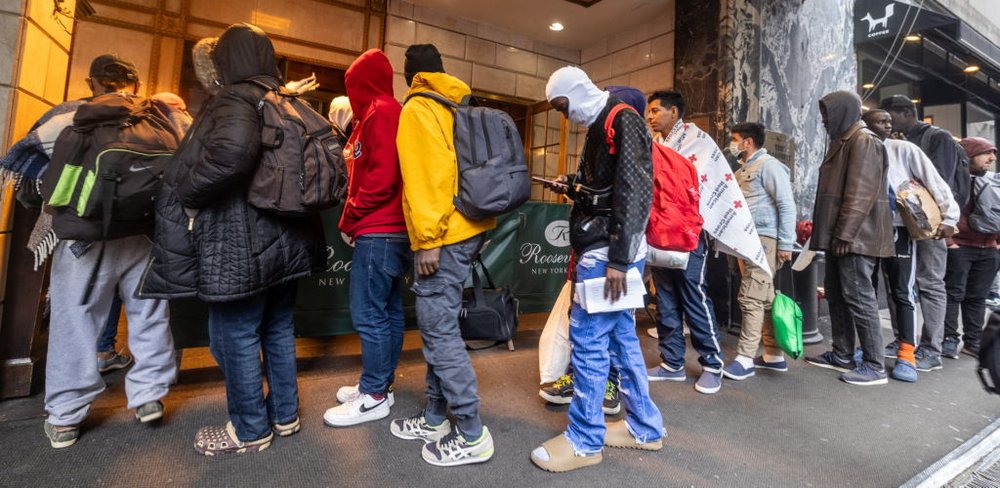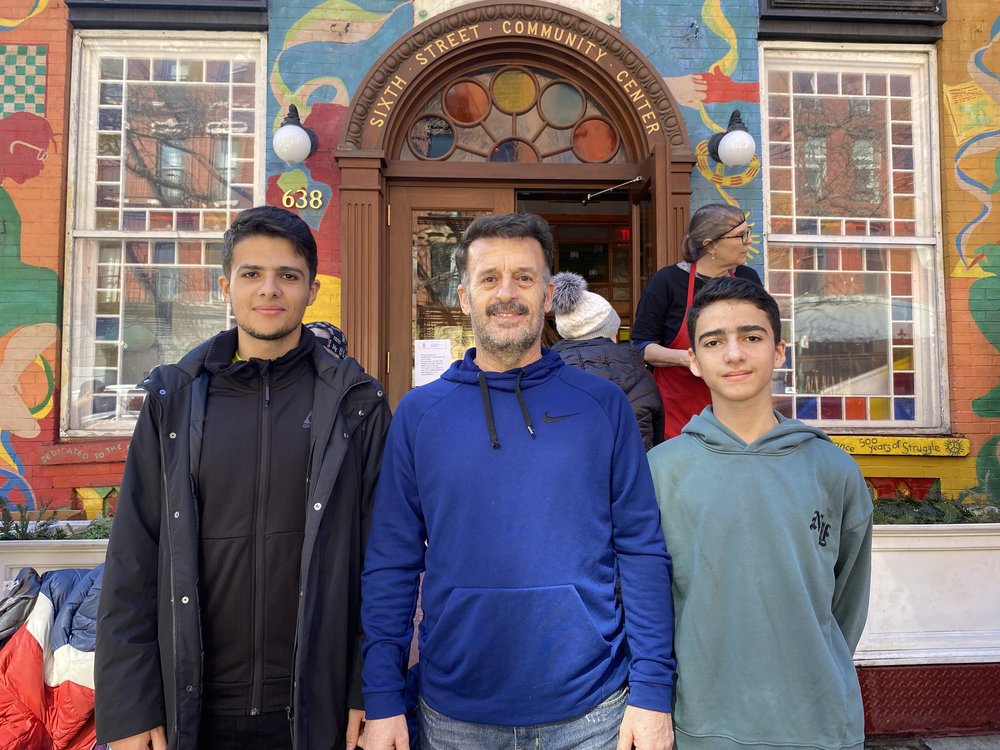Migrant families suffering from PTSD find temporary relief from NYC shelter 60-day notices
March 6, 2024, 6:01 a.m.
Federal and local laws protecting people with disabilities extend to migrants.

Some migrant families whose children have medical or mental health conditions are finding relief from having to move out of their shelters and reapply for housing despite the city limiting how long families can shelter in one place.
The reprieve comes after families have worried for months about whether their kids would be uprooted from their schools and bounced between temporary hotels.
City agencies are allowing some newcomers to stay past their departure date if they can’t move out due to a disability, according to health officials, lawyers and immigration groups. Mayor Eric Adams began restricting shelter stays for migrant families with children in January, but migrants experiencing post-traumatic stress disorder or other disabilities are getting their stays extended through so-called reasonable accommodations protected under disability law.
NYC Health and Hospitals and the city’s Department of Housing Preservation and Development say they’ve received nearly 2,200 of these requests from migrants in their care and have granted a majority of them. Migrants have requested to stay at their shelters as well as wheelchair-accessible rooms, places to store medication and dietary accommodations.
Health and Hospitals received the bulk of the requests, with 700 migrants asking to stay beyond the 60-day shelter limit for families and the 30-day limit implemented last fall for single adults. Health officials said about 60% were approved.
The accommodations are happening as the Adams administration faces increased scrutiny and an investigation by Comptroller Brad Lander over its decisions to force migrant families with children to leave or reapply for shelter every 60 days.
Child service providers are also increasingly concerned about the effect jumping from shelter to shelter — and potentially school to school — could have on migrant kids' well-being and mental health.
“If [the city] is running a program that requires people to move every 60 days to another hotel but they're still going to offer them a shelter placement and it would be harmful to their PTSD to make that move …. you must have some process in place to allow people to say that's not going to work for me because I can't come in every 60 days,” said Joshua Goldfein, a staff attorney at the Legal Aid Society.
Federal and local laws require government programs to remain accessible for those with disabilities if a reasonable accommodation can be made. Non-migrants living in shelters can also request reasonable accommodations but aren’t subject to 30- or 60-day stay limits. Goldfein said allowing migrants to remain in their shelters “doesn't make that much of a difference in the operation of the program” and would be considered a reasonable accommodation.
He said there are no particular diagnoses or conditions that automatically qualify someone for an accommodation.
“You do need to be able to show that there's a relationship between what your disability is and what is the accommodation that you're requesting, why that would help you,” he said.
The city’s Department of Housing Preservation and Development granted 119 out of 188 requests by migrants to stay past their move-out dates, according to agency spokesperson William Fowler.
“I'm really relieved that the city is following through on protocol, is listening, and is understanding the severity of the nature of this,” said Sasha Allenby, a global trauma expert and co-founder of the food insecurity nonprofit EV Loves NYC.
Allenby said the migrant children she works with have exhibited signs of PTSD, which is a disability.
“These kids have really seen things that they should not have seen and have been through things that are just way beyond their tiny years,” she said.
‘Incredibly rough things’
Rahman Sharafati arrived in the city four months ago with his 15-year-old son after fleeing political persecution in Iran.
Sharafati received a 60-day notice to move out of The Row hotel shelter in Manhattan two months ago but received an extension due to his younger son’s PTSD. He’s now seeking a second extension after receiving another move-out notice last week.

Their journey from Iran to the United States-Mexico border took 45 days. Along the way, his youngest son witnessed “incredibly rough things that I can't even mention,” including being kidnapped in Mexico, Sharafati said in Farsi through a translator.
His 18-year-old son was also apprehended at the border and separated from his family until last week, when Sharafati said he was finally released.
Sharafati, a retired elementary schoolteacher and building developer from Iran's Kurdistan region, said he’s relieved and happy that his family can remain where they are, and that his youngest son can stay in his school rather than commute an hour-and-a-half from the Brooklyn shelter where they were going to be relocated.
Sharafati said his son Sina befriended a schoolmate who speaks Farsi and also connected with a Farsi-speaking teacher who will help him learn English.
Sara Bajwa Kane volunteers with EV Loves NYC and said she’s helped 25 families seek reasonable accommodations and all were granted.
“The laws are very simple and clear,” she said. “They're there to protect everyone federally. And I know there's fears that people who aren't U.S. citizens don't get the same legal protection, but that's not the case.”
Allenby, who has written letters for migrant children exhibiting PTSD symptoms and seeking accommodations, said she’s noticed migrant children getting sick very quickly with a range of symptoms — a sign their immune systems are under a lot of stress. She also said she's seen children "literally start screaming, not screaming just like a child's tantrum, but screaming as if the world is coming to an end" when they come to the nonprofit every Sunday and don't see their favorite volunteer.
That’s not about the volunteer being absent, but rather about a disruption to the child's sense of regularity, she said.
“They need familiarity in order for that trauma to heal,” Allenby said. “If you keep putting people in survival mode and you keep sending a message to the brain that they're not safe, that they're not secure, then that perpetual cycle of trauma can never begin to heal.”
Correction: A previous version of this story misstated Sasha Allenby's position at EV Loves NYC. She is a co-founder of the nonprofit.